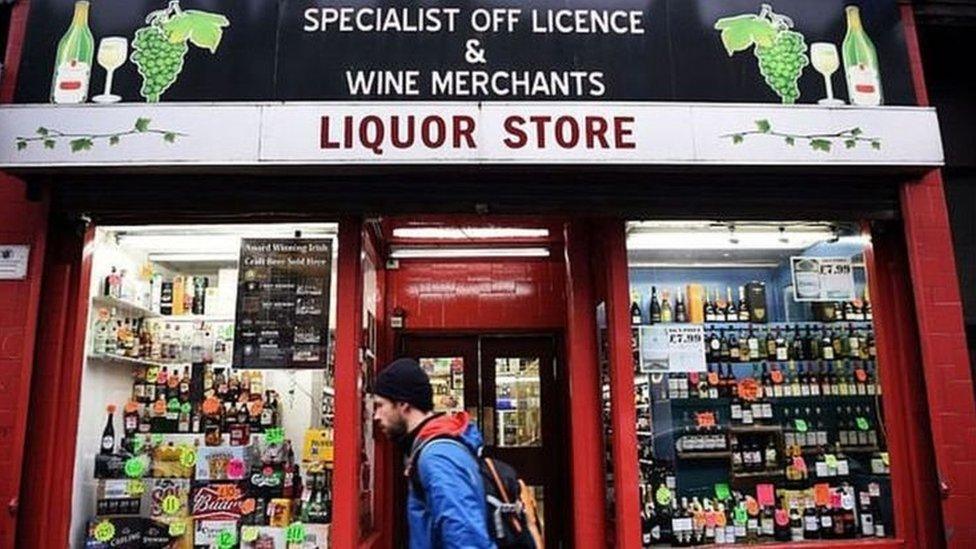Minimum alcohol pricing impact on drinks sector 'minimal'
- Published
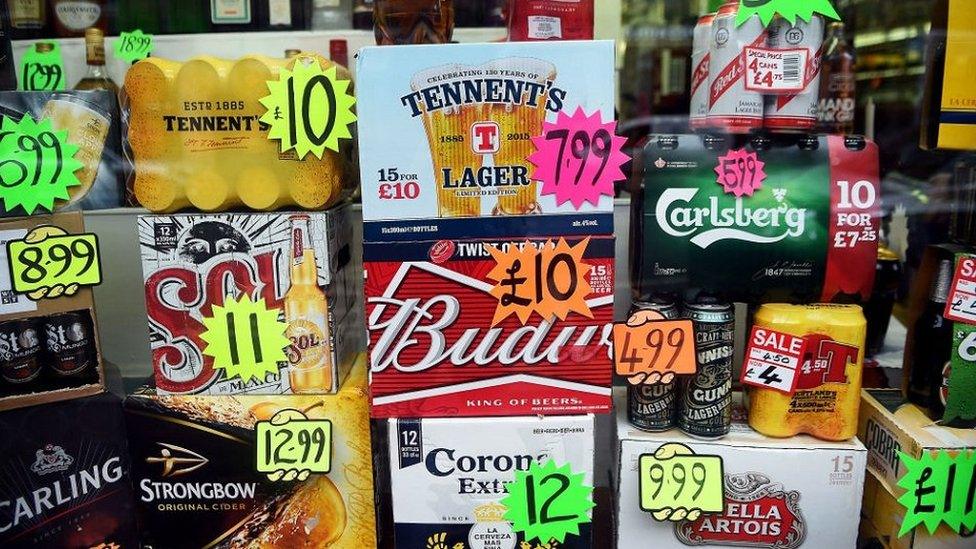
A 50p minimum price per unit of alcohol was implemented in May 2018
Minimum unit pricing (MUP) has had little economic impact on Scotland's drinks industry, a report has found.
MUP, which placed a minimum charge of 50p on each unit of alcohol, has been in force since 2018 following a protracted legal battle.
Concerns were raised ahead of its enforcement about its impact on the alcoholic drinks industry,
A report commissioned by Public Health Scotland, however, found no significant economic harm to businesses.
The research, carried out by Frontier Economics, found the policy did lower the volume sold of certain types of alcohol.
However, the economic impact on businesses was largely offset by the higher value of sales, with no reports of store closures or job losses directly related to MUP.
"There were one or two individual smaller or specialist retailers who perceived that MUP had reduced their revenues or profits or limited opportunities for growth, though not to an extent that affected staffing or store viability, while others reported no impact," the report said.
The report was the latest in a series commissioned by Public Health Scotland (PHS) to evaluate the success of the policy.
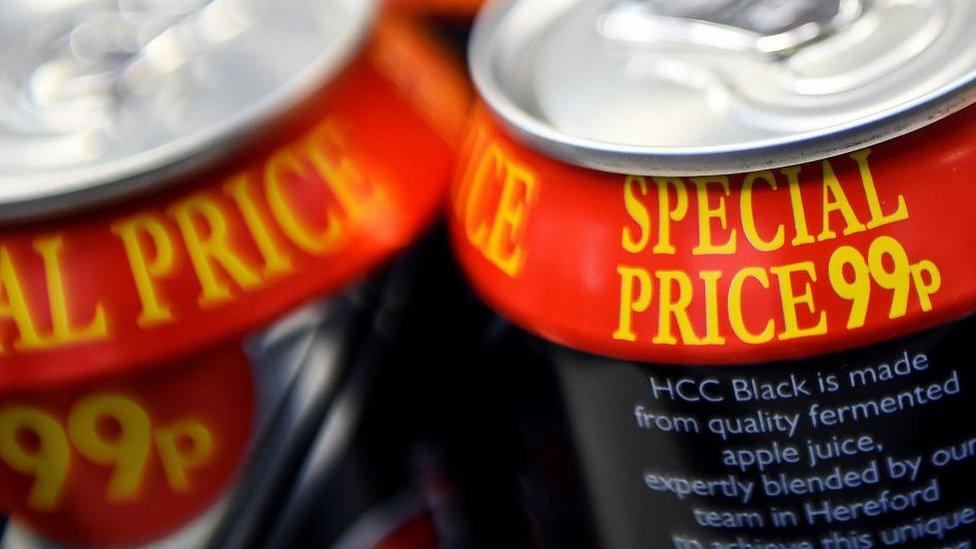
Cider and own brand spirits saw some of the biggest price increases after the policy was introduced
Previous research found that in supermarkets the average price of a unit of alcohol increased by 18%, with ciders and own brand spirits seeing the biggest increases.
In convenience stores, sales of large multipacks of lager and cider declined, but sales of smaller multipacks increased, as did sales of the Buckfast tonic wine which saw a small decrease in price.
Another previous study for PHS found little evidence that people with the worst alcohol dependence had changed their behaviour.
Public health minister Maree Todd said the latest research suggested the policy had succeeded in lowering consumption of the types of alcohol most often linked with harmful drinking, without damaging Scotland's alcohol industry.
She added: "Alcohol harms cause misery for not just the drinker but also for families, friends and the wider community, but we recognise that it is often a consequence of wider societal issues which is why we are doing all we can to help people get the support they need."
The Scottish government has said it is keeping the level of minimum pricing under review, with some campaigners arguing it should rise to 65p per unit. A consultation is also taking place on plans to restrict alcohol marketing.
'Unfounded' fears
Dr Alastair MacGilchrist, chairman of Scottish Health Action on Alcohol Problems, said the report showed fears of an impact on the industry were "unfounded".
He added: "There are many similarities between the alarmist debate now on plans to restrict alcohol marketing and those concerns aired when minimum unit pricing was introduced."
Campaign group Alcohol Focus Scotland said the report "gives the lie" to industry claims that the policy would lead to job losses for companies supplying own-label or value brands.
The Scotch Whisky Association, which mounted a legal challenge to the law, said the research was one part of an "overall evaluation", and it would await its completion before drawing any conclusions.
A spokeswoman added: "We continue to work in partnership with a range of stakeholders to promote responsible drinking and to tackle alcohol-related harm."
Related topics
- Published7 June 2022
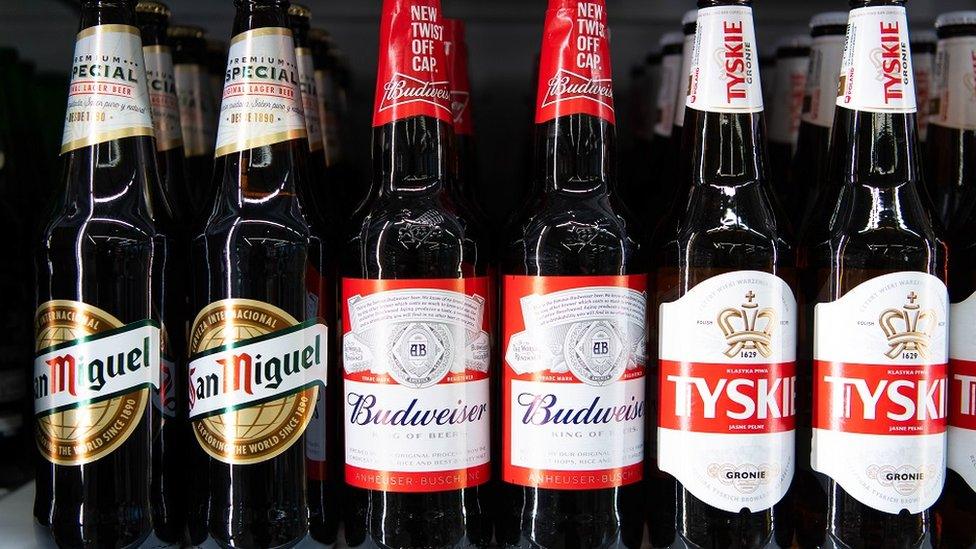
- Published12 October 2021
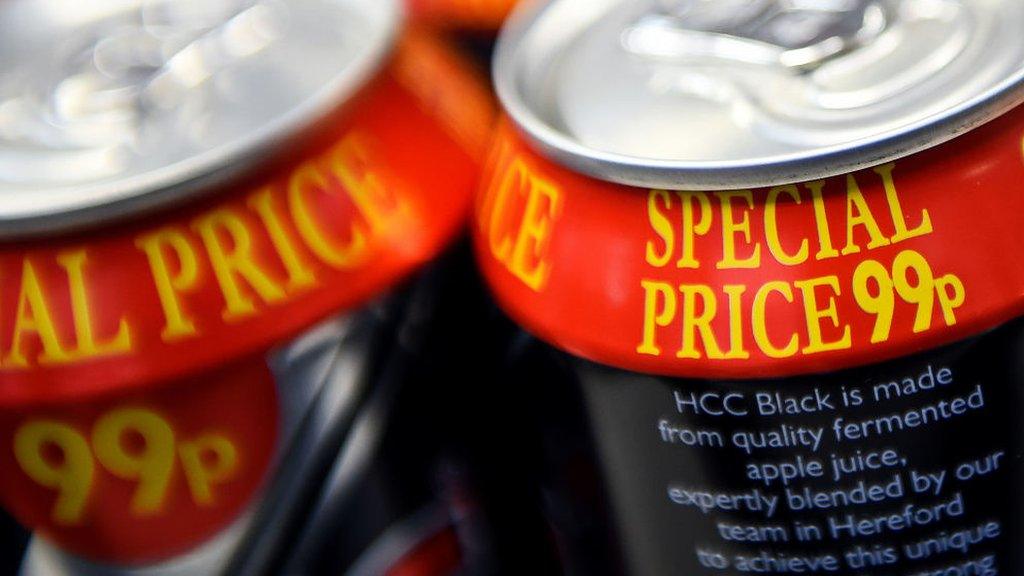
- Published29 May 2021
